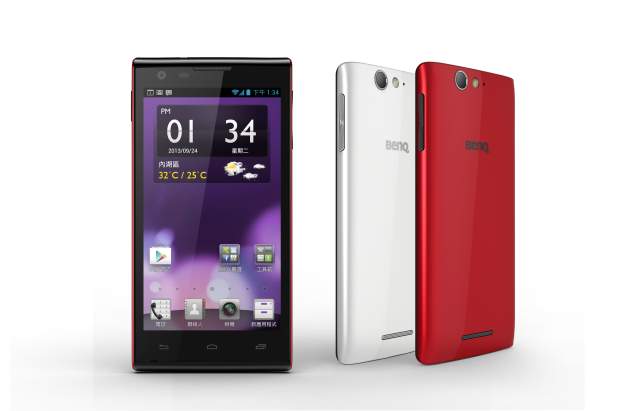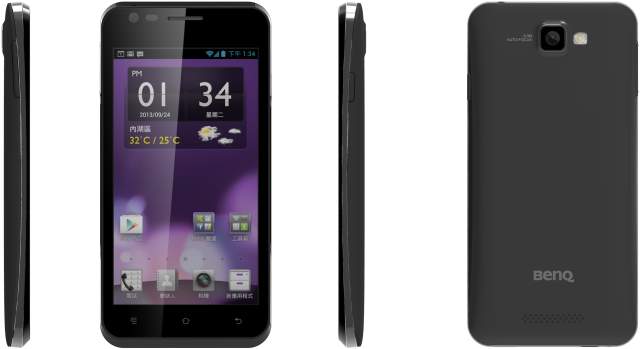
BenQ F3
After being a part of the second wave of mobile phone manufacturers in the beginning of the last decade that culminated in a purchase of Siemens former mobile phone subsidiary and ended in liquidation failure by 2007, BenQ has decided to re-enter the mobile phone market by releasing its own branded Android smartphones in Taiwan. Both devices in the F3 and A3 feature a 4.5-inch 960 x 540 IPS display, 1GB of RAM, 4GB of internal storage, microSD expansion, a 2-megapixel front camera and a nearly identical battery capacity (2,100mAh for the F3 and 2,000mAh for the A3).

BenQ A3
The main difference between the two phones is the camera: the higher-end F3 has a 13-megapixel f/2.2 main camera unit with HDR and zero shutter delay capability, where the A3 only features a conventional 8-megapixel camera. Both phones were launched early last month and BenQ has not announced plans to expand its latest mobile venture outside of the country.
BenQ’s Past In Mobile
The previous BenQ Mobile was a subsidiary of the larger conglomerate that purchased Siemens mobile phone production infrastructure with the goal of combining BenQ’s design experience with existing Siemens technical knowledge in 2005. It ended up being a fruitless endeavor, as the venture relied heavily on carrier agreements to prop up its sales and the brand wasn’t well regarded enough to sustain itself through unlocked phone sales in Europe and Asia, despite spending millions in marketing and outside sponsorship to build the brand.
With carriers around the world passing on its devices in favor of more established brands, notably the former Cingular and T-Mobile in the US, the merged BenQ-Siemens company was struggling by late 2006 following bankruptcy in October of that year and failing to find a buyer, finally making the decision to pull out of the market entirely by mid-2007, but not before the parent company released its own slate of phones in late 2007 using Chinese manufacturing and completely abandoning mobile by 2008.
The seeming return of the BenQ brand to mobile may mean little to most in the short-term, but the fact that it’s easier
than ever for companies to offer branded Android devices means that companies like BenQ can offer devices without the financial risk of its previous attempts at mobile sales and at greater scale than it ever achieved on its own.
By reviving the use of the brand in mobile, this also might mean that BenQ sees a new opportunity that it never had in its previous attempt, owing to the rapid rise of other Chinese mobile manufacturers in recent years and making more Chinese conglomerates interested in mobile as a way to expand new business interests, or revive old businesses, as in BenQ’s case.
[…] Posted in Android, BenQ, Manufacturers | Tagged Android, benq | Leave a response […]